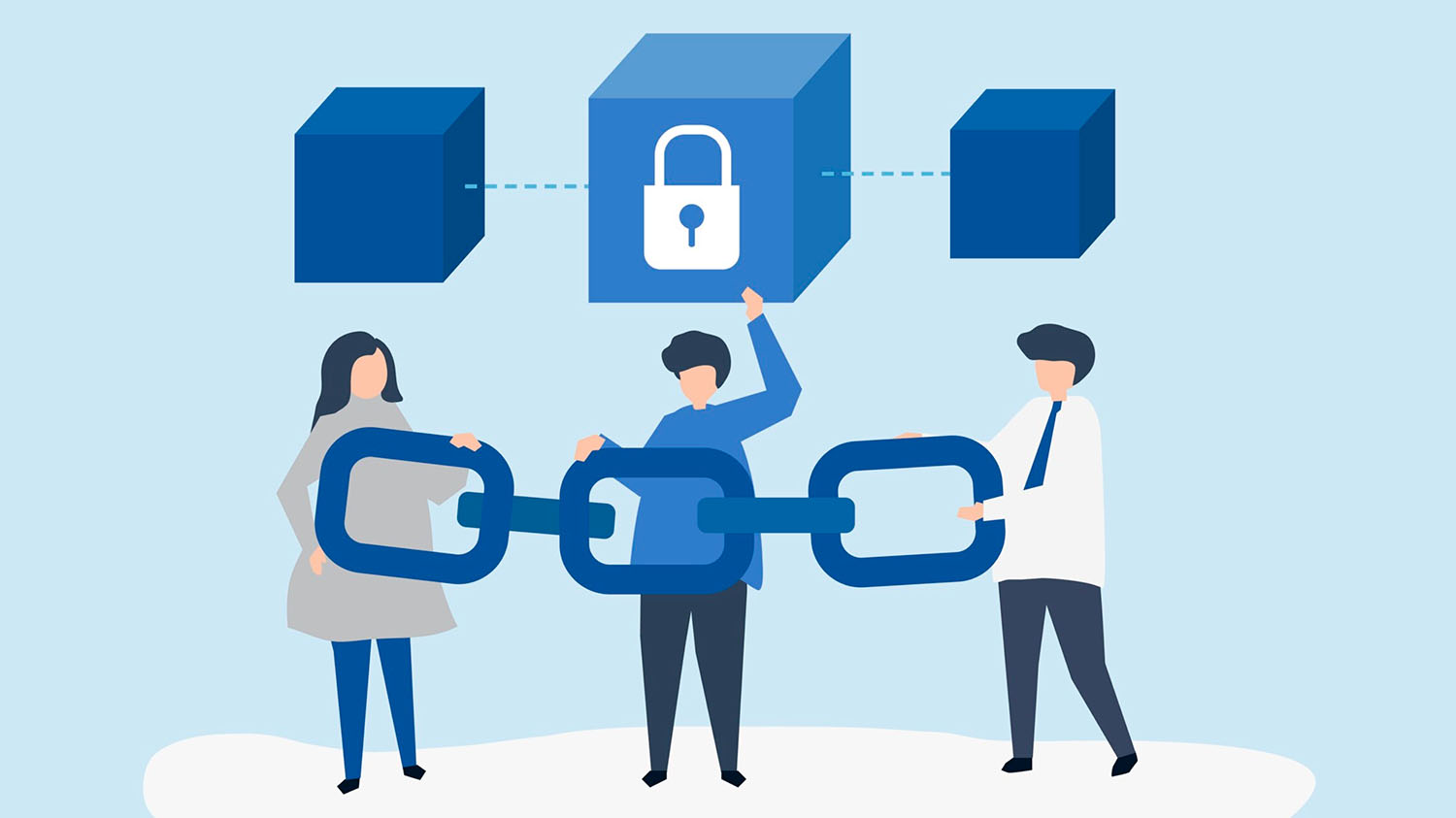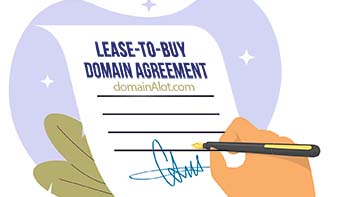What Are Web 3.0 Domains and Do You Really Own Them?
Decentralised Ownership on the Blockchain Promises Revolution but Arguably Only Delivers Hype.

Over the last few years, there has been growing interest in a new idea known as Web 3.0.
In the beginning, Web 3.0 promised revolution with cryptocurrency and financial independence from the banking system. Then a new, and smarter way for artists and creatives to finally get the revenues they deserved from their work through Non-Fungible Tokens (NFTs). And now, Web 3.0 has turned it's attention towards the very infrastructure of the internet itself and how we find products, services, companies, and sites online: through web domains.
If you follow even a little of the hype, you'll quickly discover that Web 3.0 domains are often promoted as the future of the internet. To quote a source, "For a world where people buy blockchain-based domain names that they own outright."
Sounds great, doesn't it? After all, in this "new" world, these people are supposedly free from the control of registrars and central authorities. Imagine all that freedom and independence...
On the surface, sure, this is all very appealing, and the marketing of Web 3.0 domains is doing everything that it can to promote and suggest a fairer, more independent web where digital identity is truly in the hands of the user. But when you look closely, the reality of Web 3.0 domains is much the same as crypto, NFTs, and decentralised applications, or dApps, as they are often called, that all came before them, and sadly, appears to be a lot less impressive than the promise. Here's why.
Decentralised Distribution
Before we can judge whether these new, Web 3.0 blockchain domains really are revolutionary, it helps to understand how the current system works.
The traditional web, which we all use every day, is built upon the Domain Name System, or DNS. When you type a web address like domainalot.com into your browser, DNS translates that name into the IP address of the server hosting the site. Why? Well, because it's a lot easier for us humans to type the name of a familiar brand than it is to try and remember the exact IP addresses of every site we vist.
Now, this global, distributed database is managed by ICANN and hundreds of registries and registrars around the world. And the key word here is distributed.
You see, despite what the Web 3.0 spin doctors try to tell us, the system itself isn't owned by any one company or government. So, in that sense, the web is already decentralised, which kind of puts a spanner in the argument already.
People In Glass Houses
So what exactly are Web 3.0 domains trying to fix?
Supporters claim that the current DNS system is too centralised, that registrars act as gatekeepers, and that domain names are only rented, not owned.
It's true that you pay an annual fee to keep your .com or .org, but that fee goes toward maintaining the infrastructure that keeps your domain globally visible and reliable. You could think of it almost like a tax, only instead of paying for public education or health services, you're maintaining the information highway. But ok, what about the argument of ownership?
The notion that you don't "own" your domain is misleading to say the least, and largely a misunderstanding of how the system works. You see, when you register a domain name, you control it entirely for as long as you renew it, and you can sell or transfer it freely as you choose.
Token Gesture
Blockchain domains, on the other hand, take a very different approach. Instead of being registered through ICANN-accredited registrars, they are minted on a blockchain, usually using a virtual currency such as Ethereum or Polygon, to create a unique token.
Companies like Unstoppable Domains and the Ethereum Name Service issue these names with extensions such as .crypto, .wallet, .bitcoin, or .eth.
So, what happens when you "buy" one of these domains, instead of "renting" one, in the traditional sense?
The first to thing to understand is that you're not actually buying a domain. You're not even renting one. In fact, what you are purchasing is an NFT that simply points to your name on the blockchain. Hmmm... it's hard to give credence to Web 3.0 arguments when they are so easily picked apart, and the sale of Web 3.0 domains that are pitched as "buy once, own forever" is simply because there are no renewal fees. How could there be? You haven't bought a domain name. You've merely registered a token.
Invisibility Doesn't Help Sales
Still, let's try to keep an open mind and imagine how all this might sound liberating. The problem is, that no matter how hard you try, the practical reality of Web 3.0 domains is far from simple.
These blockchain domains don't use the DNS at all. In fact, they exist on a totally separate network, something that web browsers, search engines, and email servers cannot recognise.
To visit a .crypto or .eth website, you need a compatible browser or a special plugin that can translate blockchain addresses into web content. That alone immediately limits their visibility. You can't just type one of these domains into Chrome or Safari and expect it to work, because it won't, and that means that the overwhelming majority of people, and by people I mean users, customers, and clients, will never see them. So, forget about a spanner in the works, we just described a fatal flaw.
Is There Anybody Out There?
This exact same limitation applies to email as well.
It's not that it's difficult to send or receive email using a .eth or .crypto address, it's actually impossible. This is because Web 3.0 domains don't resolve through standard mail servers, which again makes using one for businesses, or for anyone else wanting a professional online presence, impractical.
To make matters worse, even if someone could find your blockchain site, they couldn't email you through normal means.
For startups or brands hoping to be discovered online, and let's face it, that accounts for about 99.9999% of every company or business out there, that's another dead end.
Gone
Maybe we should return to the question of decentralisation itself, since that seems to be the primary argument for why Web 3.0 exists and why we need Web 3.0 domains. The only problem is, that it's this point which is my biggest gripe, mainly because it's a purely fabricated narrative.
While these new domains live on a blockchain, the reality is that they are still controlled by the companies that created and manage the smart contracts behind them. That in itself is not decentralisation. It's the very opposite. Equating to even tighter control. There are only a handful of these Web 3.0 domain companies, versus a global, diverse infrastructure. Why would anyone want to put their brand or hard earned business reputation into the hands of the few?
But there's another, even greater problem with the concept of this decentralised internet and with Web 3.0 domains, and it's one that these companies conveniently forget to mention.
If the company that sold you the NFT token for a domain shuts down, there's no guarantee that your domain will, or would, remain functional. Moreover, it's quite the opposite, and that is an enormous risk that is hard to justify. You see, unlike ICANN-accredited registrars, there's no universal system for dispute resolution, no oversight committee, or any feasible way to recover a lost or stolen name. Once the original token is gone, it's gone, and there's no getting it back. You might hold a reference to the smart contract behind the token, but it's still a reference, and if the original disappears due to insolvency, or the company that you "bought" your Web 3.0 domain's demise, your token is literally not worth the bytes it is stored upon.
Peekaboo
Supporters of Web 3.0 often claim that blockchain domains provide censorship resistance. That no government or organisation can take down a site once it's on the blockchain. It sounds impressive, especially if your core business is involved in illegal or illicit activity, but for the rest of us, it's a thin argument, and one that in practice, is mostly theoretical.
Web content itself still has to be hosted somewhere, and that server can be blocked or removed just like any other.
Blockchain domains might hide the address, but they don't make a website immune from takedown. So, if that's the point, then the point itself is pretty pointless, don't you think?
Cost Versus Value
I don't want to focus too much on cost, because price really should not be an argument either way for why the support of Web 3.0 domains. After all, it's not uncommon for many traditionally registered domains to exchange hands for hundreds of thousands and on occassion, millions of dollars. With that being said, some blockchain domains are inexpensive, but the vast majority are priced aggressively, often in the hundreds or even thousands of dollars for a single name. The "one-time payment" model might sound attractive compared to annual renewals, but it hides the fact that these domains have an extremely limited real-world utility.
You could spend a fortune on a .wallet name that hardly anyone can access, while a good .com or .net remains universally visible, secure, and easy to trade. So even as an investable asset, it is hard to argue the case for a Web 3.0 domain.
Future Proof?
Beyond the technical and financial concerns, there's the problem of confusion.
Blockchain domains use extensions that aren't recognised by ICANN, and that is a problem, and one that can create conflicts in the future. For example, what happens if ICANN decides to introduce a legitimate .wallet or .crypto under the official DNS system? Which version will browsers prioritise? As of now, it's not a problem and there is no clear answer. However, it's not hard to imagine that if one of the Web 3.0 domain extensions should ever become popular, that ICANN would alost certainly introduce the same, and that would make the long-term stability of a Web 3.0 domain uncertain at best.
Simply Put, Do We Need A New Network?
The case Web 3.0 domains all seems fairly one-sided, still, none of this is to say that the concept is entirely without merit.
Despite the debate, blockchain technology really does have an interesting potential for verifying ownership, securing transactions, and even building new types of digital identity systems. But when it comes to naming websites and building online brands, blockchain domains are a solution in search of a problem. And in all honesty, I think that's really the best way to summarise it.
The existing web is already open and resilient. It's a network of networks designed to survive failure and censorship alike. That's decentralisation in its truest form.
The web doesn't need to be replaced by an inferior competitor or rebuilt to become "free." It just needs fairer, more transparent platforms, places where people can buy, sell, and manage their digital assets without exploitation or excessive fees. That's the vision that will truly benefit domain owners, and without intention or meaning to, I find myself praising this very platform, domainAlot.com, which has been built on those very principles, and what's more, has managed to achieve it without the use of a Web 3.0 domain.




